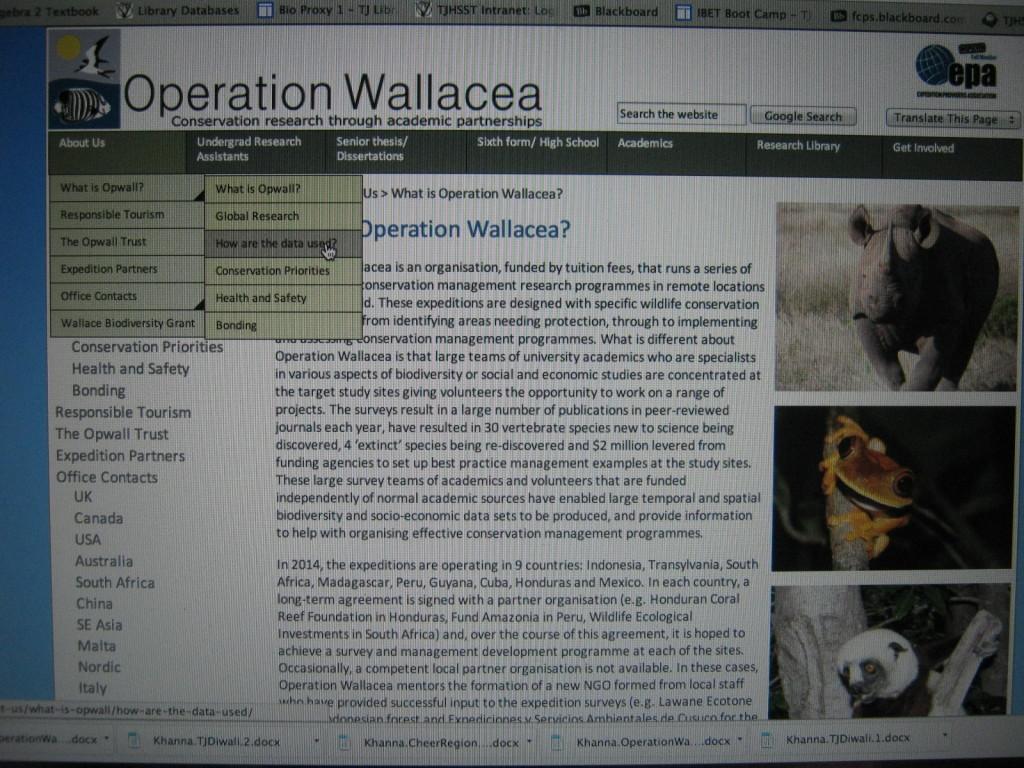Students prepare for Indonesia Research Trip
November 4, 2013
Several students from Jefferson will get the opportunity to travel around the world while pursuing their passion for field ecology over the summer of 2014 and having the experience of a lifetime. Operation Wallacea, an organization which allows high school and college students to do research in the field in remote locations, has given Jefferson students the chance to travel to Indonesia to do research in the rain forests and coral reefs of Hoga Island.
At the interest meeting held on Oct. 30, intrigued students gathered to hear information about what traveling across the world for research would be like. Costing upwards of $5,000, students came to the meeting knowing they would have to fundraise to pay for the trip.
“We’re working with Endeavorist to create a research campaign, which should help cover most of the costs,” junior Zoe Wang said.
Representatives from Operation Wallacea who spoke to students at the meeting, said that fundraising is easiest when students work as a group and make it known why they are working to raise money.
Lisa Wu, Oceanography Laboratory director and marine biology teacher, will be hosting the trip, and hopes to have eight to 16 students attend. Jefferson is one of the only schools in the United States to participate in one of Operation Wallacea’s programs, along with Robinson High School in Virginia.
Jefferson is the only school from the United States, however, that will visit Indonesia with Operation Wallacea. Other schools attending are located in Canada and the United Kingdom.
On the trip, students will spend three weeks in the jungle and on the reefs of Hoga Island, a secluded location near Jakarta, Indonesia. Students will learn to snorkel and dive, get a chance to observe species in the coral triangle and spend the night in a forest canopy.
“I am definitely most excited about diving the reefs and getting to help with research that will make a difference in environmental protection,” Wang said.






